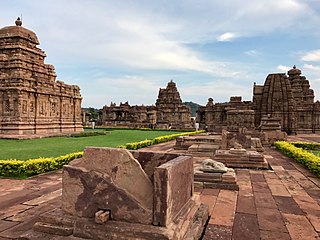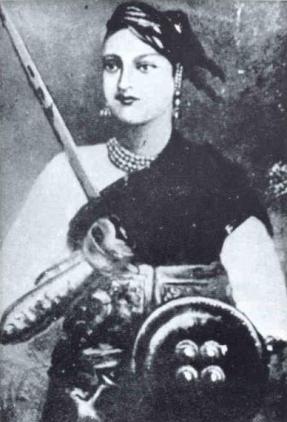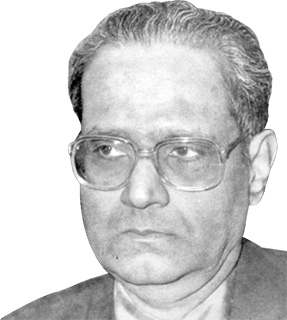This article needs additional citations for verification .(July 2013) |
| |||||
| Centuries: | |||||
|---|---|---|---|---|---|
| Decades: | |||||
| See also: | List of years in India Timeline of Indian history | ||||
Events from the year 1564 in India.
This article needs additional citations for verification .(July 2013) |
| |||||
| Centuries: | |||||
|---|---|---|---|---|---|
| Decades: | |||||
| See also: | List of years in India Timeline of Indian history | ||||
Events from the year 1564 in India.

Modern Standard Hindi, commonly referred to as Hindi, is an Indo-Aryan language spoken chiefly in North India, and serves as the lingua franca of the Hindi Belt region encompassing parts of northern, central, eastern, and western India. Hindi has been described as a standardised and Sanskritised register of the Hindustani language, which itself is based primarily on the Khariboli dialect of Delhi and neighbouring areas of North India. Hindi, written in the Devanagari script, is one of the two official languages of the Government of India, along with English. It is an official language in nine states and three union territories and an additional official language in three other states. Hindi is also one of the 22 scheduled languages of the Republic of India.

India, officially the Republic of India, is a country in South Asia. It is the seventh-largest country by area; the most populous country as of June 2023; and from the time of its independence in 1947, the world's most populous democracy. Bounded by the Indian Ocean on the south, the Arabian Sea on the southwest, and the Bay of Bengal on the southeast, it shares land borders with Pakistan to the west; China, Nepal, and Bhutan to the north; and Bangladesh and Myanmar to the east. In the Indian Ocean, India is in the vicinity of Sri Lanka and the Maldives; its Andaman and Nicobar Islands share a maritime border with Thailand, Myanmar, and Indonesia.

India is the most populous country in the world with one-sixth of the world's population. According to the UN estimates, India has overtaken China in having the largest population in the world with population of 1,425,775,850 at the end of April 2023.

Karnataka, formerly Mysore State, is a state in the southwestern region of India. It was formed as Mysore State on 1 November 1956, with the passage of the States Reorganisation Act, and renamed Karnataka in 1973. The state was part of the Carnatic region in British terminology. Its capital and largest city is Bengaluru (Bangalore).

Kabaddi is a contact team sport played between two teams of seven players, originating from India. The objective of the game is for a single player on offense, referred to as a "raider", to run into the opposing team's half of the court, touch out as many of their players and return to their own half of the court, all without being tackled by the defenders in 30 seconds. Points are scored for each player tagged by the raider, while the opposing team earns a point for stopping the raider. Players are taken out of the game if they are touched or tackled, but are brought back in for each point scored by their team from a tag or a tackle.

Mohandas Karamchand Gandhi was an Indian lawyer, anti-colonial nationalist and political ethicist who employed nonviolent resistance to lead the successful campaign for India's independence from British rule. He inspired movements for civil rights and freedom across the world. The honorific Mahātmā, first applied to him in South Africa in 1914, is now used throughout the world.

The Indian National Congress (INC), colloquially the Congress Party or simply the Congress, is a political party in India with widespread roots. Founded in 1885, it was the first modern nationalist movement to emerge in the British Empire in Asia and Africa. At the beginning the party contained moderates and later extremists, but from the late 19th century, and especially after 1920, under the leadership of Mahatma Gandhi, the Congress became the principal leader of the Indian independence movement. The Congress led India to independence from the United Kingdom, and significantly influenced other anti-colonial nationalist movements in the British Empire.

Rani Lakshmibai, the Rani of Jhansi, was the Maharani consort of the princely state of Jhansi in Maratha Empire from 1843 to 1853 by marriage to Maharaja Gangadhar Rao Newalkar. She was one of the leading figures in the Indian Rebellion of 1857, who became a national hero and symbol of resistance to the British rule in India for Indian nationalists.

Ahmedabad is the most populous city in the Indian state of Gujarat. It is the administrative headquarters of the Ahmedabad district and the seat of the Gujarat High Court. Ahmedabad's population of 5,570,585 makes it the fifth-most populous city in India, and the encompassing urban agglomeration population estimated at 6,357,693 is the seventh-most populous in India. Ahmedabad is located near the banks of the Sabarmati River, 25 km (16 mi) from the capital of Gujarat, Gandhinagar, also known as its twin city.

Anil Kumble is an Indian former cricket captain, coach and commentator who played Test and One Day International cricket for his national team over an international career of 18 years. Widely regarded as one of the best leg spin bowlers in Test Cricket History, he took 619 wickets in Test cricket and is the fourth highest wicket taker of all time as of 2022. In 1999 while playing against Pakistan, Kumble dismissed all ten batsmen in a Test match innings, joining England's Jim Laker as the second player to achieve the feat. Unlike his contemporaries, Kumble was not a big turner of the ball, but relied primarily on pace, bounce, and accuracy. He was nicknamed "Apple" and "Jumbo". Kumble was selected as the Cricketer of the Year in 1993 Indian Cricket, and one of the Wisden Cricketers of the Year three years later. Kumble was a member of the Indian team that was one of the joint-winners of the 2002 ICC Champions Trophy, which the title was also shared with Sri Lanka.

India is a federal union comprising 28 states and 8 union territories, with a total of 36 entities. The states and union territories are further subdivided into districts and smaller administrative divisions.

The Bene Israel, also referred to as the "Shanivar Teli" or "Native Jew" caste, are a community of Jews in India. It has been suggested that they are the descendants of one of the Ten Lost Tribes via their ancestors who had settled there centuries ago. In the 19th century, after they were taught about normative Judaism, they migrated from villages in the Konkan region to nearby cities throughout British India—primarily to Mumbai, but also to Pune, Ahmedabad, and Karachi, where they gained prominent positions within the British colonial government and the Indian Army.

The India national football team represents India in international football and is governed by the All India Football Federation (AIFF) and is under the global jurisdiction of FIFA. It is governed in Asia by the Asian Football Confederation (AFC) and in South Asia by South Asian Football Federation (SAFF) — both of which were co-founded by the Indian team's supervising body, the AIFF.

Independence Day is celebrated annually on 15 August as a public holiday in India commemorating the nation's independence from the United Kingdom on 15 August 1947, the day when the provisions of the Indian Independence Act, which transferred legislative sovereignty to the Indian Constituent Assembly, came into effect. India retained King George VI as head of state until its transition to a republic, when the Constitution of India came into effect on 26 January 1950 and replaced the dominion prefix, Dominion of India, with the enactment of the sovereign law Constitution of India. India attained independence following the independence movement noted for largely non-violent resistance and civil disobedience led by Indian National Congress under the leadership of Mahatma Gandhi.

The British Raj was the rule of the British Crown on the Indian subcontinent; it is also called Crown rule in India, or Direct rule in India, and lasted from 1858 to 1947. The region under British control was commonly called India in contemporaneous usage and included areas directly administered by the United Kingdom, which were collectively called British India, and areas ruled by indigenous rulers, but under British paramountcy, called the princely states. The region was sometimes called the Indian Empire, though not officially.

Indian people are the citizens and nationals of the Republic of India. In 2022, the population of India stood at 1.4 billion people. According to UN forecasts, India overtook China as the world's most populous country by the end of April 2023, containing 17.50 percent of the global population. In addition to the Indian population, the Indian overseas diaspora also boasts large numbers, particularly in the Arab states of the Persian Gulf and the Western world. While the demonym "Indian" applies to people originating from the present-day Republic of India, it was also used as the identifying term for people originating from what is now Pakistan and Bangladesh prior to the Partition of India in 1947.
Indian Australians or Indo-Australians are Australians of Indian ancestry. This includes both those who are Australian by birth, and those born in India or elsewhere in the Indian diaspora. Indian Australians are one of the largest groups within the Indian diaspora, with 783,958 persons declaring Indian ancestry at the 2021 census, representing 3.1% of the Australian population. In 2019, the Australian Bureau of Statistics estimated that 721,050 Australian residents were born in India.

The Mughal Empire was an early modern empire in South Asia. At its peak, the empire stretched from the outer fringes of the Indus River Basin in the west, northern Afghanistan in the northwest, and Kashmir in the north, to the highlands of present-day Assam and Bangladesh in the east, and the uplands of the Deccan Plateau in South India.

Kotha Satchidananda Murty (1924-2011) was an Indian philosopher and professor. Murty served as the Professor of Philosophy, Andhra University, Visakhapatnam and Vice-Chancellor of Sri Venkateswara University, Tirupati in the state of Andhra Pradesh, South India. He specialized in Buddhist philosophy and contributed extensively to Mahayana Buddhism. His treatise on the teachings of Nagarjuna is well acclaimed.

Shubman Gill is an Indian cricketer. Representing Indian cricket team at the international level, he also plays for Gujarat Titans in the Indian Premier League and Punjab in domestic cricket. Gill served as the vice-captain of the Indian Under-19 cricket team in the 2018 Under-19 Cricket World Cup and won Player of the Tournament award. A right-handed opening batsman, Gill holds the record for youngest cricketer to score a double century in One Day International cricket and the highest T20I score by an individual for the Indian team.